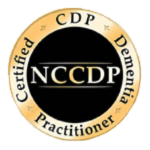Introduction
In today’s world, with an increasingly aging population, the prevalence of Alzheimer’s Disease and related dementias is on the rise. This surge presents not only a medical challenge but also a societal one, as families and communities grapple with the implications of these neurodegenerative conditions. While research continues to seek cures and treatments, the emphasis has notably shifted toward prevention. Adopting a proactive approach to combat the onset and progression of these conditions offers hope and empowers individuals to take control of their cognitive destinies.
Lifestyle Modifications for Cognitive Health:
The onset of Alzheimer’s Disease and related dementias is a complex interplay of genetics, environment, and lifestyle. While certain factors might be beyond our control, lifestyle modifications present a proactive approach to bolster cognitive health and potentially delay the onset of these conditions.
Dietary Choices play a pivotal role in brain health. A Mediterranean diet, characterized by its rich content of omega-3 fatty acids, fresh vegetables, fruits, whole grains, and lean proteins, has been linked to reduced risks of cognitive decline. The antioxidants present in this diet combat oxidative stress, while the limited saturated fats support overall cardiovascular health, a key component for brain vitality.
Engaging in regular Physical Activity offers multifaceted benefits. Not only does it promote heart health, but it also enhances blood flow to the brain, fostering the growth of new neuronal connections. Whether it’s a brisk walk, cycling, or aerobic exercise, physical activity has consistently shown promise in supporting cognitive functions.
Mental Engagement acts as a workout for the brain. Just as muscles strengthen with use, so does the brain. Continuous learning, whether it’s picking up a new language, solving puzzles, or engaging in intellectually stimulating readings, keeps the brain agile and resilient against age-related cognitive decline.
Lastly, in today’s fast-paced world, Stress Management is indispensable. Chronic stress, if unchecked, can lead to the release of inflammatory chemicals, potentially harming brain cells. Integrative approaches like meditation, yoga, and mindfulness not only alleviate stress but also enhance overall well-being, promoting a harmonious mind-body relationship.
In essence, adopting these lifestyle modifications is akin to laying a strong foundation for a fortress, where the fortress is our cognitive health. While no strategy offers a guaranteed shield against dementias, a proactive lifestyle fosters resilience, preparing the brain to face the challenges of aging with grace and vigor.
Medical and Environmental Precautions: Shielding the Brain
The trajectory of cognitive health is influenced not just by genetics but also by a confluence of medical and environmental factors. In the battle against Alzheimer’s Disease and related dementias, understanding these external influences and taking precautionary measures can significantly shape outcomes.
Regular Health Check-ups serve as the first line of defense. Cardiovascular health is inextricably linked to cognitive health. Conditions such as hypertension, diabetes, and elevated cholesterol levels can impair blood flow to the brain, potentially exacerbating cognitive decline. Regular screenings, timely interventions, and lifestyle modifications can keep these factors in check, indirectly safeguarding brain health. The environment we inhabit also plays a pivotal role. Avoiding Toxins, especially prolonged exposure to heavy metals like lead or certain chemicals, is crucial. Studies have drawn potential links between these toxins and increased risks of cognitive disorders. This underscores the importance of safety measures, especially in occupational settings, and advocacy for reduced environmental pollution.
While lifestyle modifications are paramount, Medication and Supplements can also play a supportive role. Certain vitamins and supplements, including Vitamin D, B12, and omega-3 fatty acids, have shown promise in bolstering cognitive health. However, it’s essential to consult with healthcare professionals before integrating them into one’s regimen, ensuring they complement existing medications and conditions.
Lastly, Head Injury Prevention cannot be overstated. Traumatic brain injuries, especially repeated concussions, can elevate the risk of conditions similar to Alzheimer’s. Whether it’s adopting safety measures in contact sports, using helmets, or ensuring safer home environments for the elderly, these precautions can mitigate risks significantly.
In essence, while the genetic blueprint might predispose individuals to certain risks, medical and environmental precautions offer tangible pathways to influence cognitive trajectories. By adopting a proactive, informed approach, we can not only protect our brains but also foster an environment conducive to cognitive longevity.
Social and Emotional Well-being: The Heart and Soul of Cognitive Health
Beyond the biological and environmental influences on cognitive health lies the intricate tapestry of our social and emotional lives. Our interactions, feelings, habits, and choices in these spheres play a profound role in shaping the trajectory of our brain health.
Social Engagement offers a myriad of cognitive benefits. Regular interactions, be it with family, friends, or within community circles, stimulate the brain, keeping it active and agile. Such engagements have been linked to slower cognitive decline and a reduced risk of Alzheimer’s. Furthermore, maintaining close personal relationships offers emotional support, buffering against the stresses that can potentially harm the brain.
Emotional Health is a cornerstone of overall well-being. Conditions like depression, anxiety, and other mood disorders not only impact the quality of life but also pose risks to cognitive health. Addressing these conditions, whether through counseling, medication, or lifestyle interventions, is crucial. A balanced emotional state paves the way for a resilient and robust cognitive framework.
The adage, “sleep is the best meditation,” holds weight when discussing Sleep Hygiene. Quality sleep is restorative, allowing the brain to repair and regenerate. On the flip side, sleep disorders, especially sleep apnea, have been linked to cognitive decline. Ensuring regular sleep patterns, creating a conducive sleep environment, and addressing sleep disorders are integral to cognitive well-being.
Lastly, certain lifestyle choices can either bolster or jeopardize cognitive health. Limiting Alcohol and Tobacco is paramount. While moderate alcohol consumption might offer some protective effects, excessive consumption poses risks. Smoking, with its myriad of harmful chemicals, has been associated with cognitive decline and increased risk of dementia.
In conclusion, our social interactions, emotional states, daily habits, and lifestyle choices weave the narrative of our cognitive journey. By fostering positive social ties, managing our emotional health, prioritizing sleep, and making informed lifestyle choices, we lay the foundation for a vibrant cognitive landscape.
Conclusion
The journey to preventing Alzheimer’s and related dementias is multifaceted, requiring a blend of physical, cognitive, and emotional strategies. From maintaining an active lifestyle and fostering social connections to managing emotional health and making informed lifestyle choices, each aspect plays a crucial role in shaping our cognitive health. It’s a testament to the interconnectedness of our beings – how our minds, bodies, and souls intertwine in the narrative of cognitive well-being. As we navigate this path, it’s essential to remember that it’s never too early or too late to make positive changes. Every step, every choice, and every day presents an opportunity to lay the foundation for a brighter cognitive future.





















